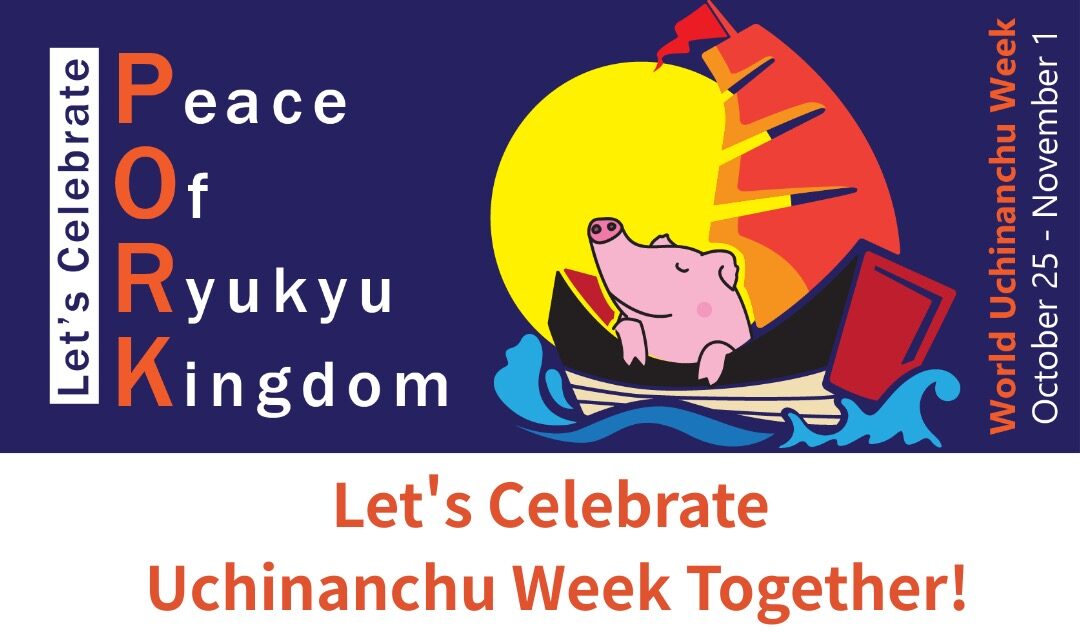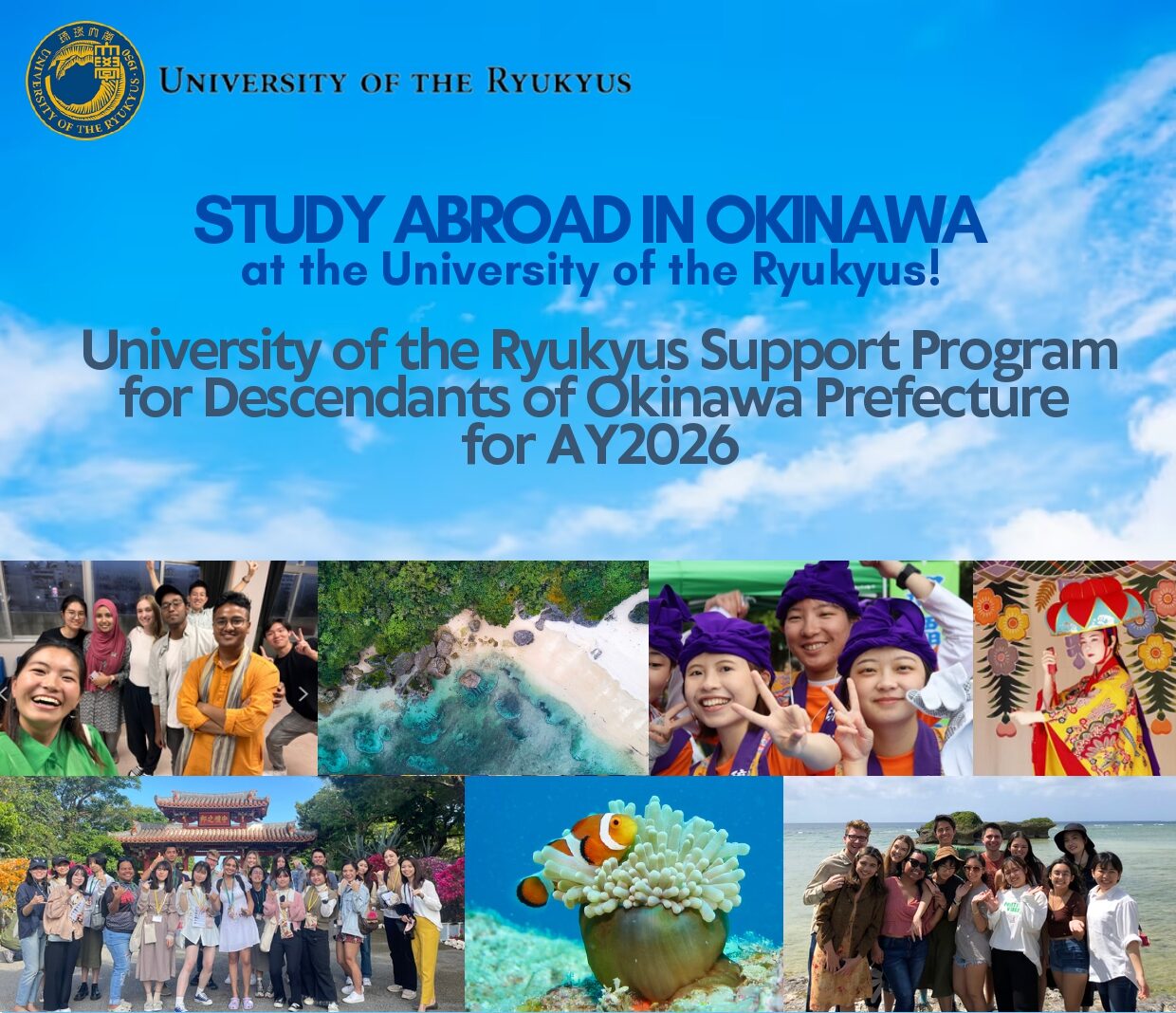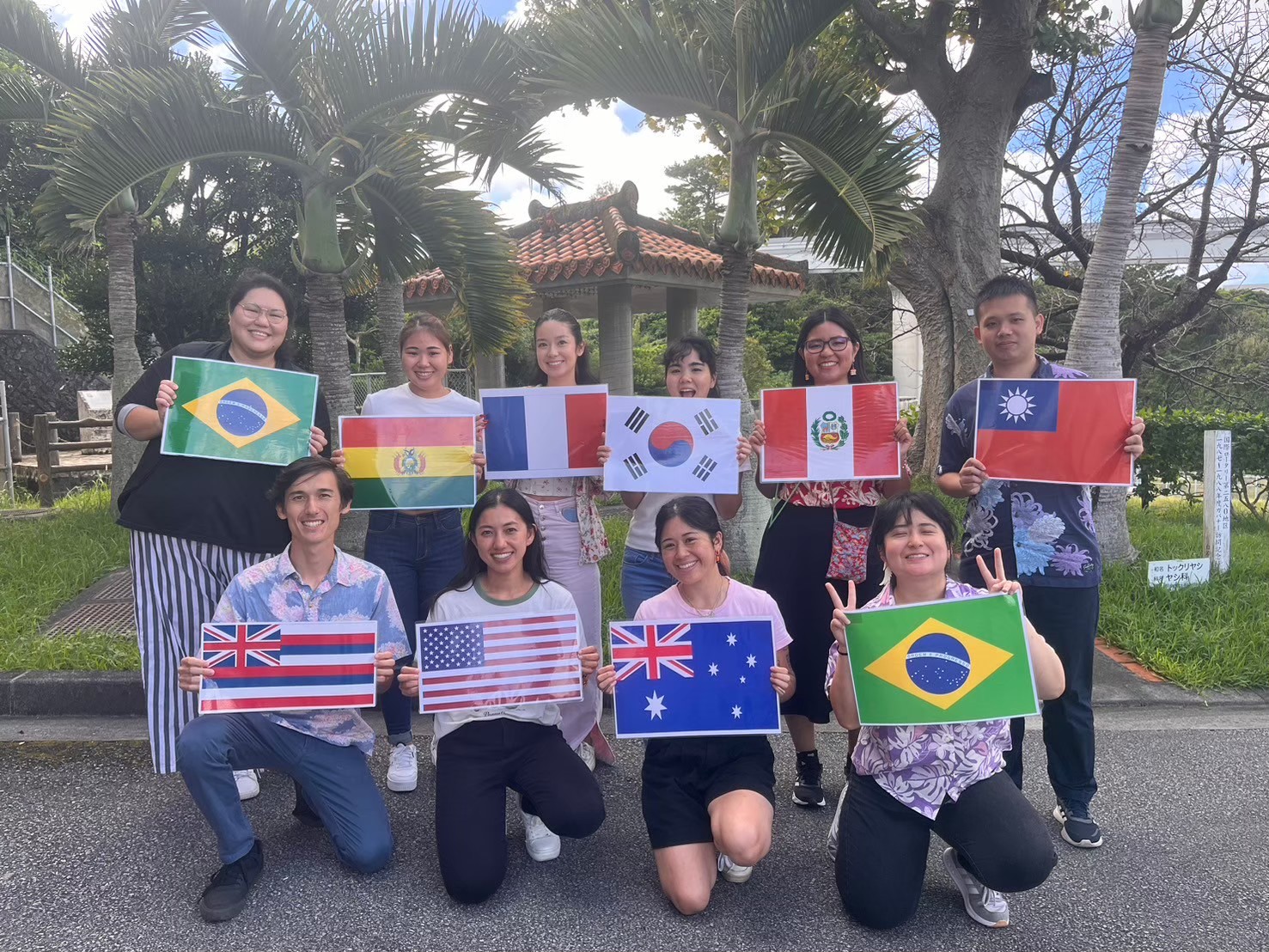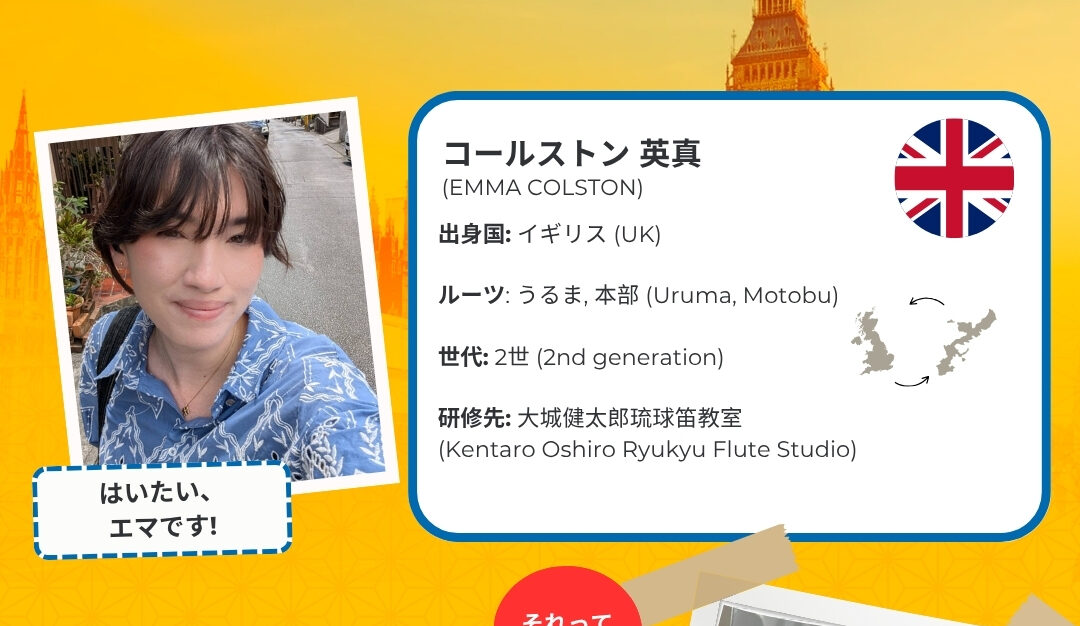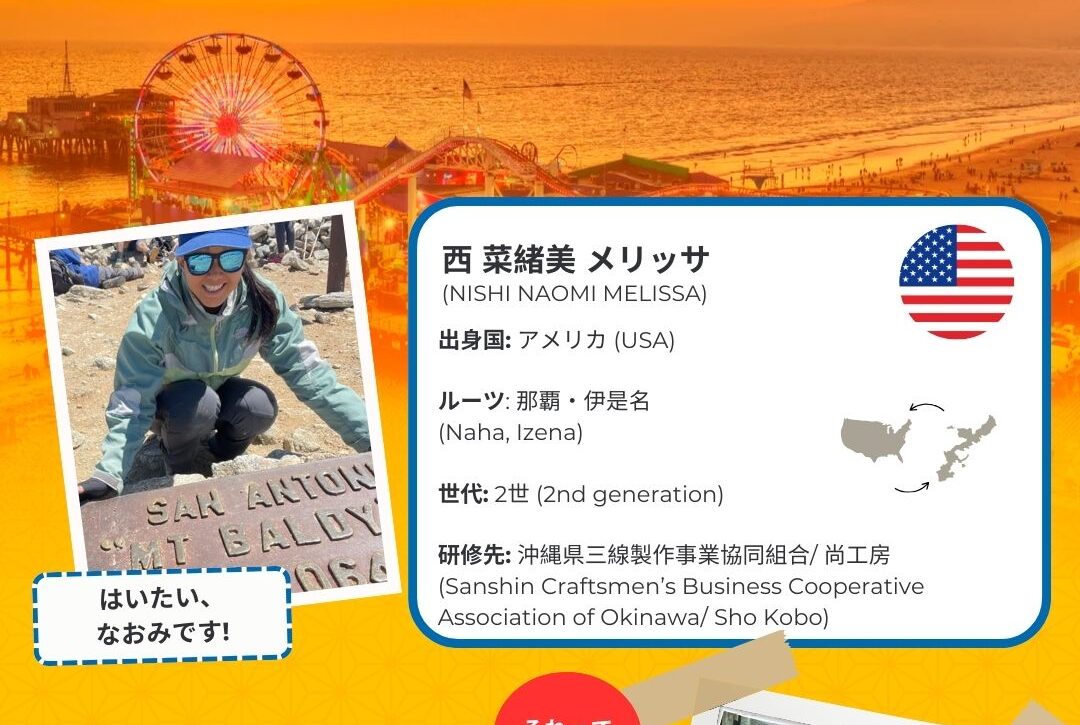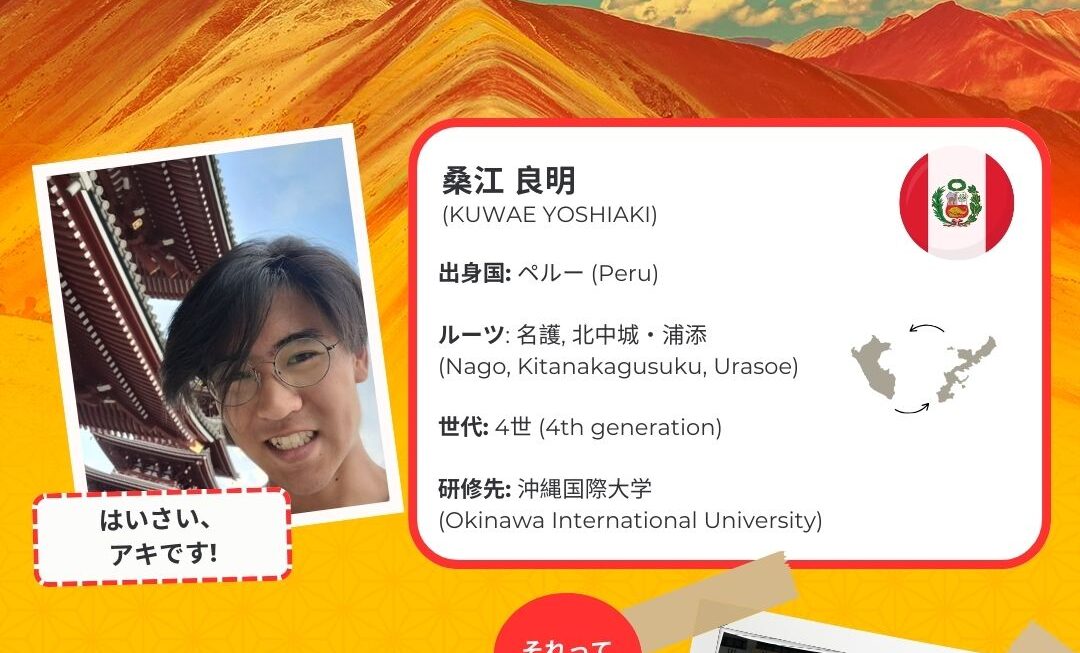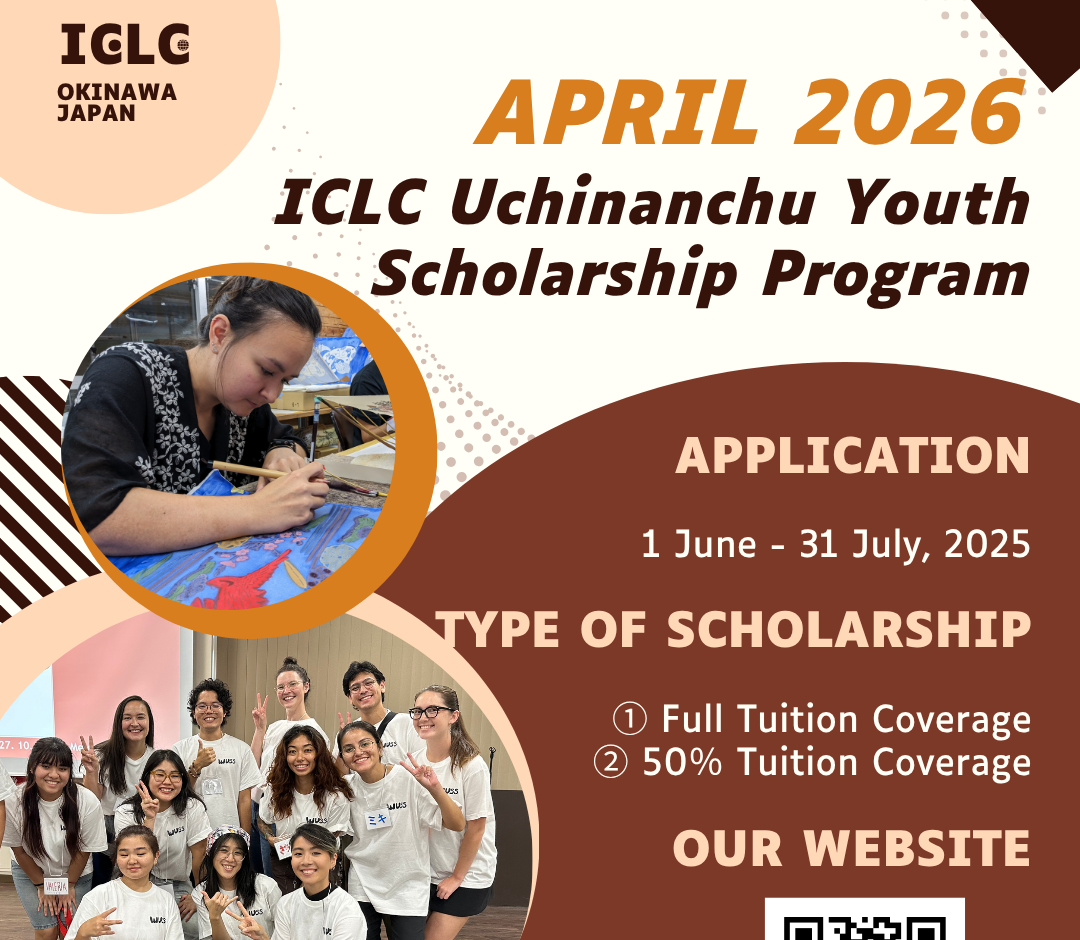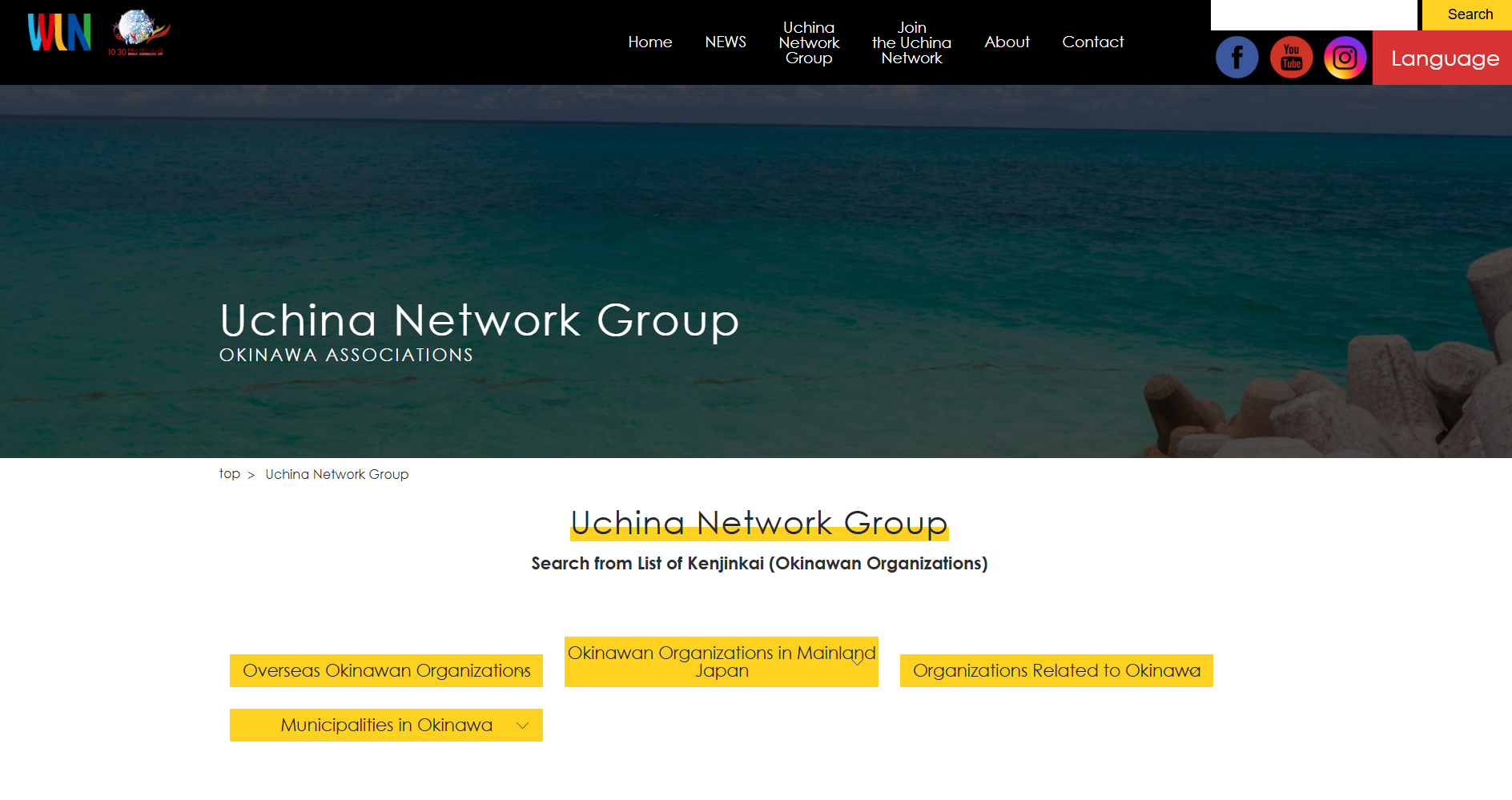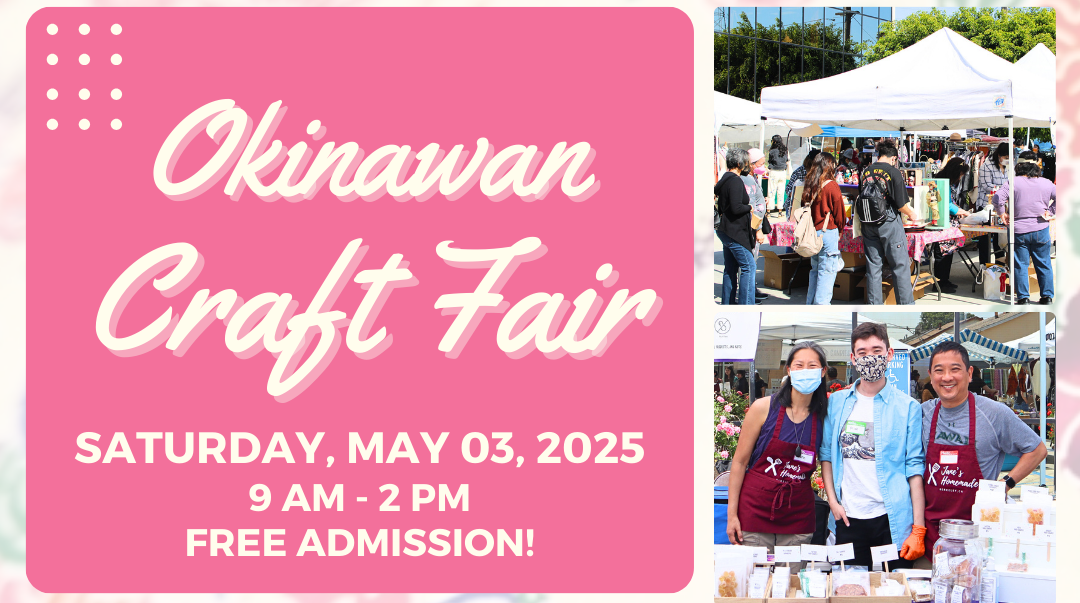2025.12.10
2025 Uchinā Goodwill Ambassador Activiti…
2025.10.22
Let's Celebrate Uchinanchu Week Together…
2025.9.08
University of the Ryukyus Support Progra…
2025.8.18
Regarding Acceptance of Applications for…
2025.8.01
2025 Kenpi Program Student Efforts [Emma…
2025.7.25
2025 Kenpi Program Student Efforts [Nish…
2025.7.18
2025 Kenpi Program Student Efforts [Kuwa…
2025.6.05
[APRIL 2026] ICLC Uchinanchu Youth Schol…
2025.5.09
Okinawa Kenjinkai Info Updated!
2025.4.14
OAA 6th Annual Okinawan Craft Fair



